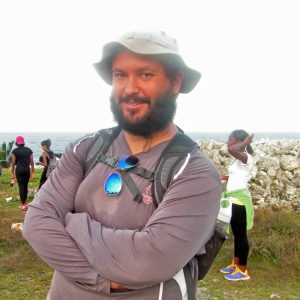
I am a conservation ecologist with over 10 years of experience. I have earned an AS Degree from the then College of the Bahamas (now University) in Biology with a minor in Chemistry, a Bachelor of Science in environmental Science from the University of the West Indies (UWI) at the Mona Campus in Jamaica, followed by an MSc at the UWI’s Cave Hill Campus on Barbados and most recently a MPhil in Conservation Leadership at the University of Cambridge.
I have worked primarily in The Bahamas as a technical officer at the Bahamas National Trust’s Science & Policy division. My attention has been on the expansion and effective management of the protected areas system. I’ve worked and led teams that surveyed ecosystems to determine reef health, use GIS technology in delineating boundaries and support community outreach to ensure that vulnerable areas and species are protected and managed. My role at the Bahamas National Trust was to collect in situ data to help to ensure that the protected areas were managed through science driven conservation. I was also head of the GIS Unit, and had responsibilities implementing new technology into the organization to help increase management effectiveness. Throughout my career I’ve worked with drone mapping, photo mosaics for reef environments, bathymetry mapping from small vessels and supporting habitat classification of shallow water environments through some remote sensing. This work has led to the expansion of the marine protected area (MPA) system as part of The Bahamas’ goal of protecting 20% of its nearshore environment. Though I try to be a generalist, I have special interest in the marine ecosystem (primarily mangroves and coral reefs), resulting from my time growing up near on small islands.
Research

We’re at the forefront of global efforts to boost coral reef resilience and biodiversity through cutting-edge scientific research and groundbreaking restoration methods. Explore our research to witness how our innovative approaches are driving measurable change and securing a future for coral reefs.

